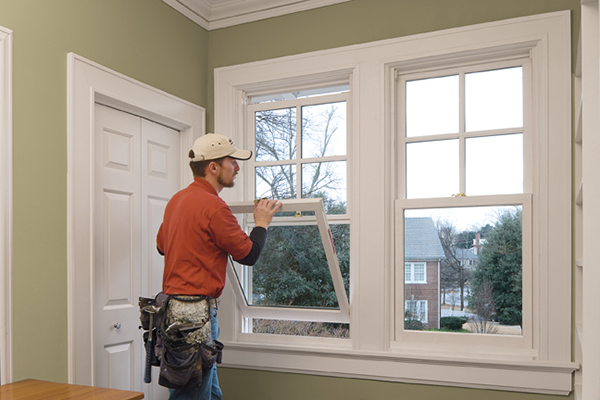Insightful Bytes
Your daily dose of informative news and inspiring insights.
When to Say Goodbye to Your Windows: A Replacement Love Story
Is your window ready for retirement? Discover the signs it’s time to say goodbye and embrace a fresh start in your home!
Signs It's Time to Replace Your Windows: A Visual Guide
As a homeowner, it's important to recognize the signs it's time to replace your windows to maintain energy efficiency and comfort in your living space. One of the most noticeable indicators is the presence of drafts. If you feel cold air seeping through your windows during the winter months, it's likely that the seals are compromised. Additionally, foggy or condensation-filled windows can suggest that the insulating gas between the panes has escaped, reducing their effectiveness. Look for uneven heating or cooling throughout your home, which can often be traced back to aging windows struggling to maintain indoor temperatures.
Another key sign to consider is the physical condition of your windows. Check for damaged frames, peeling paint, or wood rot, especially in older models. These issues can not only detract from your home's aesthetic appeal but also pose risks for further deterioration if left unaddressed. Furthermore, if your windows are difficult to open or close, or if you notice significant noise from outside, it may be time to invest in replacement windows. Understanding these visual cues can help you make an informed decision and ultimately improve your home's value and efficiency.

How to Choose the Right Replacement Windows for Your Home
Choosing the right replacement windows for your home is a crucial decision that can affect both energy efficiency and aesthetics. Start by evaluating your home’s architectural style and the specific needs of each room. For instance, areas that receive more sunlight might benefit from windows that offer UV protection, while bedrooms may need more sound insulation. Consider materials such as vinyl, wood, or fiberglass, each offering distinct benefits in terms of durability and maintenance.
Next, assess the energy efficiency of potential window options. Look for windows with the Energy Star label or those that have low U-factors and high R-values. Such windows can significantly reduce heating and cooling costs. Finally, don’t forget to factor in your budget—while high-quality windows can be an investment, they often pay off in the long run through energy savings and increased home value. Always consult with a professional for installation recommendations to ensure the best outcomes.
The True Cost of Delaying Window Replacement: Is It Worth It?
Delaying window replacement can lead to significant long-term costs that often outweigh the initial savings. When windows become aged or damaged, their ability to insulate your home diminishes, leading to higher energy bills. Increased heating and cooling costs due to drafts and poor insulation can range from 10% to 25% more than homes with efficient windows. Furthermore, the financial burden doesn't stop at energy expenses; homeowners may find themselves paying for frequent repairs and maintenance as the condition of the windows worsens over time.
Beyond financial implications, delaying window replacement can also impact your home's comfort and safety. Older windows may not open or close properly, posing a safety hazard in emergencies and reducing overall ventilation. Additionally, outdated or damaged windows can compromise your home's security, making it an easy target for intruders. Ultimately, considering the full scope of both immediate and hidden costs, it becomes clear that the true cost of delaying window replacement is often not worth it in the long run.